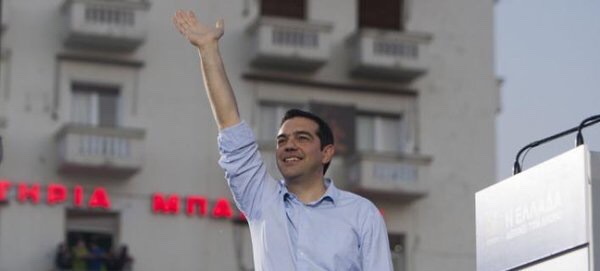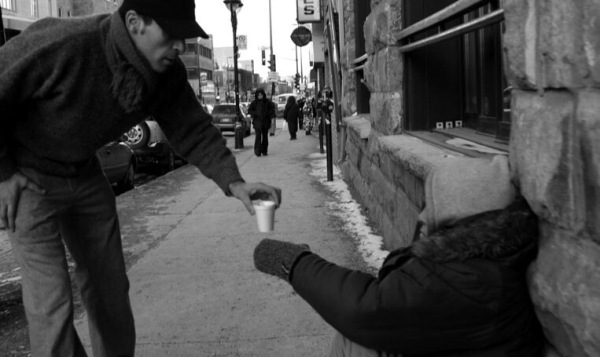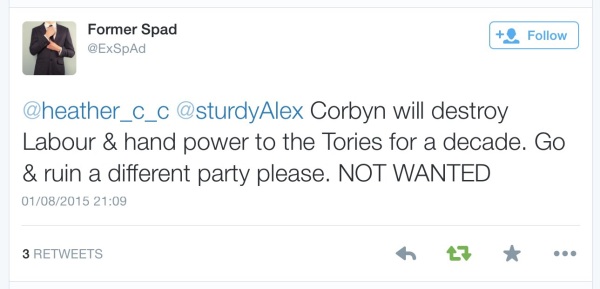An Invisible Economic Recovery
Increasingly, the London I read about is not the London I experience.
We’re told, for some years now, that we are in economic recovery. I look across the capital’s roofs at dusk, into zone1 in the distance, and it looks more like an oil field than a city; a skyline dominated by cranes; a city building to the heaven. By all signs, London should be a happy, vibrant, employed, safe, booming place. And yet it is not. None of the glass and steel, none of the wealth those cranes carry, ever reaches the ground.
People seem to me grey, worried, more irritable than ever. Local Bermondsey folks are visibly angry at the gentrification pushing them out of the area in which they were born. I keep seeing glittering residential developments everywhere, but have never met anyone who lives there. I know nobody whose pay has kept up with inflation in the last five years. Any foray to the West End confirms that this entire city subsists on tourism.
In the Prime Minister’s own constituency, the Tory council leader had to write to him to explain the impact of his own cuts. To explain that cuts to the local area are not of the magnitude of £200m, as the PM believes, but three times that at £600m. That a 37% drop in funding is not the “slight fall” the PM seems to think. That an asset sale as a solution is “neither legal nor sustainable in the long term.”
My own local services have been slashed. Refuse collections are occasional and erratic. The roads are in a state of constant disrepair. The youth centre’s hours have been reduced. Care home places are scarce. Local transport service is a shambles; half of the buses counting down on the display turn out to be phantoms. Public toilets have been sold. Local parks are full of people in ill mental health and quite some distress. I see increasing numbers of homeless and – disturbingly – many of them are elderly.
The local Tesco have had to change their policy on reduced-to-clear food, because arguments kept breaking out among customers. Two more businesses closed this month on my fairly small Southwark Park Road parade of shops. Several others are showing distinct signs of struggling. Even the local Co-op is quite obviously in trouble. This has been the pattern since the crisis. About half the high street is now boarded up. And that is only because betting shops and pawn shops have taken the place of some gone shops.
While all this goes on, the political agenda of most news outlets – print, radio or TV – is absolutely dominated by arguments over the angle of a bow or kneeling etiquette. For days and days. The only conclusion available to me is that either by convergence of interest or coercion, there is a clear and collaborative attempt between media and government at significant misdirection. A deliberate and organised campaign to mislead.
The bifurcation between what I experience as a citizen and what the news tells me was easy to miss. It grew very gradually, like hair growing long on someone you see every day. But it is now too wide to ignore. London is not a city in economic recovery. At least my bit of it ain’t. It is in absolute decline. I needed to say that. The Emperor, so far as I can see, is completely naked.
I do not ask that you believe me. I ask that you look around and compare what you see with your own eyes, to the growth narrative being universally pushed down our throat, every hour on the hour like aspirin. That’s all. Just look around.
AN ANNOUNCEMENT
And so it came to pass that Chatto & Windus – the publisher of H.G. Wells, Mark Twain, Virginia Woolf, Marcel Proust and Samuel Beckett – has secured the global English rights to my ramblings about food, memory, caring for a parent with dementia, and the financial crisis. It did so, in a competitive field, with a passion and enthusiasm which took my breath away and made me believe that, perhaps in time, I might grow into a writer.
The Magic Bay Leaf – a title which might mean something to regular followers – is not a cookbook, although it contains recipes. It is not a memoir, although it contains personal history. It is not an essay on the financial crisis, although it reflects on it. It is the story of my tempestuous love affair with Greece, with Mum, with Politics, with Food and how they weave into each other.
My editor Parisa Ebrahimi at C&W and my agent Rachel Mills at PFD have been the most doting literary parents and have introduced me to the Penguin/Random House family with affection and care. As for my culinary Fairy Godmother, the resplendent Nigella Lawson, who saw in me what I couldn’t see in myself… Words shall never be sufficient to express my love and gratitude; but maybe the many, many meals we will continue to share will be more eloquent.
All that remains is the small matter of organising a suitcase full of garbled notes and cryptic recipes, and a head full of aching memories and filial love, into the story they demand to be.
Thank you for all the support
Alex
______________________________
Here is the full announcement on The Bookseller.
Chatto & Windus has bought a “portrait of Greece as seen from the kitchen table” by Guardian and New Statesman writer, actor and cook, Alex Andreou.
Editor Parisa Ebrahimi acquired world English rights to The Magic Bay Leaf from Rachel Mills at PFD.
The Magic Bay Leaf is described as “blending memoir, food and travel writing to reveal the hidden art of real Greek food”.
“It’s also the story of a son returning home to Mykonos to look after, and cook for, his mother as she suffers from Alzheimer’s related dementia,” said Chatto. “In sumptuous prose, as enlightening as it is elegant, and featuring a selection of bold, adventurous recipes, this is the taste of Greece as a taste of home – reminding us of the importance of food – to a country, and family, in crisis.”
Ebrahimi said: “We are overjoyed to bring Alex to Chatto – it’s about time someone lifted the lid on Greek cuisine and he is the perfect person to do it. This is the story of real Greek food told through the prism of home and homeland, written out of passion and necessity, in prose that is as delectable as the food it describes. This is food writing meets memoir at its sparkling, sumptuous best.”
Andreou said: “Food is memory. It carries the imprint of personal and national history. Real Greek food exists in painfully beautiful, primary colours: born in kitchens with two gas rings and no gadgets, with dull knives, threadbare cloths and superstitious rituals. It embodies the hospitality and hardship of an entire people. This is the story I want to share with you: of a woman losing pieces of her identity, in the midst of a country struggling to rediscover its own, of chopped parsley and generational shifts, of prickly pear and migration, of bay leaves and caring for a parent with dementia. A memoir of life and a manual of love, for those who never knew and those who forgot.”
The Magic Bay Leaf will be published in 2017.
WHY GREECE MUST STICK WITH TSIPRAS
Are they all the same? Actually they couldn’t be more different.
I started writing this piece almost ten days ago, but couldn’t finish it. It changed constantly. Initially, I made a conscious decision not to react to the news of the snap election in Greece instantly. People were stunned, felt hurt; felt betrayed by Alexis Tsipras for signing an agreement for a third bail-out. They saw him as transforming into “the establishment”. Others kept faith, hoped still. Wounds felt raw, moods volatile. Friends and family members fell out. And, to be honest, I wasn’t sure what to make of it all.
So, I waited. I listened carefully to all sides. I listened to my instinct. I spoke to friends, family and colleagues back in Greece. And of course I listened to the party leaders. I was none the wiser. The only effect was I have utterly fed up of nautical similes. They’re all captains. It’s all ships and storms and safe ports, compasses and fog and wind, Cyclops and prophets and witches and many, many suitors. I know the poet says it is the journey that matters, but I just want to arrive. I need Ithaca.
READ THE REST OF MY COLUMN ON BYLINE – THE CROWD-FUNDED JOURNALISM SITE.
The crazy idea of a fairer society
A friend chose yesterday of all days, to bait me about Corbyn being a dangerous socialist and Thatcher’s “you always run out of other people’s money”. This was my response.
Dearest C,
I don’t really know where to start to reorient you. I suspect you don’t wish to see another side to your argument, whatever the other side is. I don’t know how to engage with this reduction of entire decades to cheap Murdoch headlines. All I can say is “the data simply does not support your position” and hope that facts can make a difference.
Poverty in Britain rose under Thatcher to levels not seen since the aftermath of World War II. Unemployment reached percentages not experienced since the great depression. The gini coefficient — economists’ accepted method for measuring inequality — grew by 40%. The welfare culture that you so despise, is entirely her baby. It was simply cheaper to park people on benefits, in the mining and industrial towns that she decimated, than retrain them to a diversified industry. We are living the legacy of that. These are the facts of conservatism.
According to the economist Bernard Lietaer, author of The Future of Money, as recently as 1975 roughly 80% of foreign exchange transactions involved the real trading of a product or a service. The rest were mostly speculative; bets made on the value of currencies going up or down. By 1997 the percentage of foreign exchange which involved transactions in the real economy was only 2.5%. Today, according to the Global Policy Forum, only 0.6% of foreign exchange could be traced to genuine international trade in goods and services. More than a third of those happens daily in the City. Money has ceased to be the tool of trade and has become its object.
Thatcher simply wanted to make way for Britain becoming “financiers of the world”, in her own words. Others, like Germany, chose a diversified production base. We became the world centre of usury. Britain’s over-reliance on its finance industry is the reason we were particularly vulnerable to the global financial crisis. It is also the reason we have lived in perpetual boom and bust since her time. Because boom and bust is good for the finance industry.
Booms are when imaginary value is created and busts are when it is converted to real wealth, by buying assets (often, state assets for which generations have paid) on the cheap. Without the jagged peaks and troughs of the ups and downs, the finance industry simply makes less money. The trouble is, the booms are getting narrower and narrower in terms of whom they benefit and the busts deeper and deeper about whom they harm and how much.
The latest one in 2008, in which private, liberalised banks – the absolute symbol of free market capitalism – collapsed spectacularly and had to be bailed out with taxpayers’ money, represents the absolute failure of capitalism, even by its own standards. It has created a mutated hybrid, a Frankenstein system, in which the very top now benefit directly from the state-collected proceeds of the many. A system under which not only do they avoid tax, but they get it pumped into them when in trouble. A system which has mutualised their losses, while protecting their privatised profits. It has rewarded market failure. Meanwhile, people like you bitch about the comparative drop in the budget ocean that is a mobility payment for someone disabled or a dialysis machine for someone ill or social care for someone old and alone.
An even bigger crisis is coming. The first shockwaves of it are being artificially kept at bay from China to the U.S. A system under which the richest 1% will control as much wealth as the remaining 99% by 2018 (according to Oxfam’s global poverty report) is a creaking, unstable House of Cards. Even neoliberal voices are beginning to recognise this fact and express it explicitly (see the paper which resulted from the IMF’s conference on inequality this year).
What pains me is to see people like you, who do not belong to that elite and never will, defend it. You are the middle class defence they have built around their wealth. You are the talking-out-of-your-arse, relatively well-to-do 5% moat which protects their enormous castle.
That 1% relies on you believing the nonsense you spout – and using your megaphone to spread it – in order to keep their ever-growing wealth safe, by irrationally hoping that this sort of megawealth is somehow possible for you too, somehow available. That, someday, you too might be invited to the enormous castle for dinner. You never will. You provide their dinner. You are the staff. You are the mug that keeps buying scratch cards from which nobody, ever, won a penny.
But that irrational hope makes your tongue unkind and your elbows sharp. In truth, you have much more in common with the people you do down, than with those you defend. I hope you never get to find out how close to penury you – and all the salariat – are. We are constantly encouraged to spend anticipated income. Mortgages, credit cards, speculative portfolios. If the income stops, for whatever reason, most of us are instantly bankrupt. I hope you never get to find out what real, state-sanctioned, Daily-Mail-sponsored unkindness feels like. I like you and would not wish it on you.
In your heart, you know all of this. You have chosen to silence at a societal level everything that you consider good on a personal level. You have chosen to fling mud at any attempt to discuss a fairer system that is based around people, rather than money. You know this is wrong, but you still do it, because you are self-interested. You mock those who are less so. You’re doing all right at the moment – you’re healthy, employed, secure – so you don’t give a toss about those who are not. You simply want to pay less tax. That is what it boils down to. “Me” is the most important word in your Lexicon, the only word even, and you think that’s dandy.
Well, it isn’t. There are those who disagree with your bitter, jaded version of society. And you should thank heaven for us, because if yours became the only view, if the cruelty you long for became reality, the result would not be a society which you would enjoy. You demand respect and solidarity for your rights, but offer none in return.
I have resented typing every word of this, because your premise is absolutely disingenuous. You think people who fail are lazy or stupid and have said so on many occasions. You would never be tempted to vote for radical, progressive politics. You would find a way to intellectualise your rejection of them and stick to your voting habits. So your protestation of “oh, if only you were more sensible, Labour, I might vote for you” is bunkum.
I have typed it anyway, however. Just so you can tut and roll your eyes at my leftie nonsense and think of some irrelevant “but what about” sophistry to wheel out in reply. Knowing that I chip away at you on a deeper level than the shallow push and pull of soundbites. Because I’m right. Because my way is better and you know it. Because there must be a terrified part of your brain that gets what utter foolishness it is supporting a system and a world view, which daily makes us all less kind, less open, less caring, less civilised, less evolved and, ultimately, less human.
But you don’t have to be that person. You have a choice. We all do. You can soothe those around you with word and action, rather than cut them with criticism. You can help those who are in a worse position, not step on their throat. I wish you would choose that.
I love you.
A
Something serious has happened, but you don’t know it yet
Most of you will still be at work this time of day. Something serious has happened, but you don’t know it yet.
When you get back this evening, you will find your home has been demolished. Just flattened. You have no idea why. Your family may or may not have been in it. Everything you own certainly was. Your neighbours have disappeared. You stand there looking at the remains, trying to process the scene. It’s impossible. Then you start to dig frantically, but it’s no use. It’s just a mountain of rubble. You should call the police. You try your phone, but you’ve been cut off. You look for your car. It’s gone. WHAT IS GOING ON?
You sit on the curb confused. You’re tearful. You feel the whoosh of someone running past, behind you. When you turn your rucksack is gone. You look around, but the culprit is nowhere to be seen. But you realise all the shops are closed… except a little corner shop. You go in and ask the woman behind the counter for help; ask what happened. She doesn’t understand. She talks back in a foreign language. Seems upset. Or angry. Your stomach rumbles. The shop’s shelves are almost empty. You get a bottle of water and a chocolate bar. She asks for 200 $US. When you protest, she calls her husband and they throw you out.
You try to get money, but the cashpoint swallows your card. You wander aimlessly for a bit. The streets are empty. You’re very hungry. You see a discarded, half-eaten chicken thigh. It’s covered in muck. Something takes you over and you fall on hands and knees and grab it. You pat the dirt away and bite. You feel maggots wriggle in your mouth. You vomit. As you’re trying to recover, out of the dark, A MAN EMERGES. His look is crazed. He’s ranting. He’s holding a machete. It’s dripping with a dark red, viscous liquid. He’s heading right for you.
Instinct kicks in. You run. He runs. You turn a corner and duck into a dark doorway. You hold your breath. He runs past. With a creeping terror in the pit of your stomach, you realise, you’re not alone in the dark. A neighbour of yours is there. She tells you that there are thousands like Machete-Man. Millions. Some sort of mass hysteria. Or a virus. Nobody knows. They have been on a rampage all day. “Where the fuck have you been?” she hisses.
She tells you, that your other half is dead. As is your son. You ask about the town where your extended family lives. Lived. Obliterated. “Sorry”, she offers limply, “but your little daughter is alive”. Taken in by the police. Neighbour doesn’t know where to. She tells you there’s not enough room in this doorway. “You have to leave”. She brandishes a kitchen knife. She shoves you out. Machete-Man hears the commotion. He’s about 100 yards away and he is coming for you. You walk the other way. You hear a scream behind, as he dispatches your neighbour with one blow. You plead with passers-by for help. Some ignore you. Most run away. One spits at you and screams abuse. Another takes out a piece of wood, with long rusty nails through it, and joins Machete-Man. You start to run. And you keep running.
You’ve been a REFUGEE for barely an hour.
by @sturdyalex
Can we stop tearing strips out of each other over Corbyn?
The most frightening aspect of Corbyn’s ascendancy has been watching self-described rational, progressive, enlightened people behave like the very lowest, smearing, opportunistic tabloid hacks. On all sides. Truly shocking. Then, presumably, when the same tabloids do it to whomever is Labour Party leader before the 2020 election, most of the same people will be incandescent with rage, saying “how dare they take things out of context and twist them to suit their agenda?”
 There is nothing Corbyn could do or say to convince the majority of people who are opposed to his choice, because emotionally they have decided that he is far too radical or unelectable or whatever. Just as I decided that he will be an effective tool for shaking up a rotten system and revitalising the Labour Party. And that is that.
There is nothing Corbyn could do or say to convince the majority of people who are opposed to his choice, because emotionally they have decided that he is far too radical or unelectable or whatever. Just as I decided that he will be an effective tool for shaking up a rotten system and revitalising the Labour Party. And that is that.
I don’t have a problem with their assessment. I respect it. There is nothing wrong with it. It’s as (il)logical as mine. It’s just how they intuit the situation and it is different to how I do. I don’t understand why people see it as a huge threat to their “leftie” identity. Like, somehow, there is only room for one good leftie in the world and it is EITHER YOU OR JEREMY CORBYN, THE BASTARD.
So, I wish we could dispense with the whole cod “I like many of his policies, BUT” or “I would have voted for Cooper, but she is too close to the previous cabinet” facade and the faux-evidentiary approach. It’s bollocks. We are all playing out our confirmation bias in the worst possible way, having decided instinctively within days, hours or minutes. Let’s just speak plainly and honestly.
For a huge slate of complex reasons many people like Corbyn and are inspired by him. Many feel strongly the opposite. Many feel that way about other candidates. Most shall never convince each other. MOST HAVE ALREADY VOTED FFS. All they can hope to achieve is make each other feel like shit by going “you’re a Tory, if you voted for Kendall” or “you’re an antisemite if you voted for Corbyn”.
Why should we choose to inflict these wounds on each other? They will be slow to heal.
What seems to be lacking is any big picture view, holistic assessment or, indeed, sense of fairness and solidarity to people who are, after all, on the same broad side. It is a case of “let’s look at everything someone has said in four decades or four years or four months of politics and see if we can find four individual sentences, which we can then unforgivably misrepresent as objectionable”. Shock-horror: those sentences are there! For every candidate, by every candidate and against every candidate.
With the same breath, we all complain about how grey, samey and faceless our politicians are and how they never give a straight answer and are always ruled by spin. In short, we would like someone direct, who has strong views on all matters great and small, willing to say exactly what they think, but who has never said a single thing with which we disagree.
Good luck to us all.
On Labour being taken over by Lefties
It really has been quite extraordinary declaring myself as a Jeremy Corbyn supporter. I have been subjected to what I can only describe as a consistent, concerted and aggressive campaign of intimidation.
Everything from people just swearing at me, to supporters of other candidates trawling through my past tweets and blogs in order to misinterpret some criticism of the Labour Party as “treason” and alert HQ to it, to MPs sending me private message calling me disgusting for saying that ad hominem attacks are counterproductive.
This hysteria boils down to three basic issues:
1. The fervent belief that moving the party to the left will mean electoral oblivion.
2. The notion that the only thing worth being is “in power”, regardless of what you do to get there.
3. A narrow view of the Labour grassroots movement as some private members-only club.
Does Labour moving to the left equal electoral oblivion?
Central to this claim is the juxtaposition of Tony Blair’s “golden years” versus Ed Miliband “move to the left” costing Labour the last election. Both elements of this argument are simply fictitious.
Tony Blair’s victory was as much a product of the previous few elections as it was of the 1997 campaign. Labour had consistently improved its position since its low point in 1983 (27.6% to 30.8% to 34.4% to 43.2%). Remember that before John Smith’s untimely death, Labour was widely predicted to win the election, having established an ostensibly unassailable 23 point lead over the Tories. A week before he passed away, the Conservatives suffered a spectacular defeat in Council elections.
From the point of Blair’s election onwards Labour’s share of the vote began to steadily decline (43.2% to 40.7% to 35.2% to 29%) and actually rallied a little under Miliband to 30.4%, despite being obliterated in Scotland. You can see all the figures here. The facts, then, are that Labour was a party ascendant since 1983 and declining since 1997. You may not like it, but that is the only cogent conclusion.
It is also worth noting that Ed Miliband’s peaks in the polls coincided with the moments in which he stood up to the Murdoch press, committed to price regulation and reform of the energy market and promised to control rents and abolish the nondom tax status. And it was moments during which this message was confused with pink vans, immigration mugs, Sun photo ops and Edstones that his popularity dipped.
I’m not saying that Blair’s policies did not help him to get initially elected. They did. But they were also deeply unpopular while in government – the decision to go to war with Iraq saw the biggest exodus of Labour Party members, seeing membership dip to levels not recorded since the 1930s. It is also worth noting that Blair was not just positioning himself in order to win. He genuinely believed in his programme and could orate on it with authenticity and passion.
Personalities and style are important, too. There is little doubt in my mind that Miliband offering precisely the programme Blair did in 1997 may not have been elected and a young unknown Blair, offering Miliband’s policies in 2010 may have. Although, this is clearly imponderable.
It is also bizarre to exclude from the equation the demise of Thatcher, Black Wednesday and allegations of sleaze from the 1997 election result. As bizarre as it is to exclude allowing Tories free rein to establish a narrative of Labour being responsible for the global financial crisis from the result in 2010.
In short, Blair’s success as much as Miliband’s failure are down to an immensely complex nexus of circumstances. To reduce them to “move to the right = winning” versus “move to the left = losing” is a profoundly cynical move by those who want the party to move to the right regardless.
We can’t do any good, unless we’re in power
The political landscape is shaped by all political forces. Labour are currently ignoring their role as Opposition in a maniacal dash to calibrate and triangulate their position aiming for electoral victory in 2020. Not only is this unbelievably daft, because it is far too soon and there will be immense, game-changing events in between, some of which we know about (Referendum on European membership) and most of which we don’t, but also because it ignores a distinct, tangible and inexorable panEuropean shift of popular movements towards anti-austerity politics.
Absconding from the job of Opposition is an unforgivable snub to the nine million people who voted for Labour and gave it the second most important position in British politics. It is being observed, it will be prominent in voters’ minds and it will further weaken Labour’s voting base (the main challengers in the North will be UKIP, who will be able to say “look, they’re all the same”, mark my words).
One only needs to look at how the SNP has progressed or how Nigel Farage has forced a referendum to understand the long term value of having a clear, unwavering message in a landscape of shifting values and disenfranchisement. The apter question, in my mind, is this: If Labour shift their policies to the extent of not offering a clear alternative to the Conservatives, (a) what good are they to working people, whether in power or not; and (b) why would anyone vote for them instead of the real Tories?
The Labour Party as a private members’ club
It is indicative that in the last few days I have been attacked as a “three quid socialist”, a Marxist entryist, a clicktivist, a hipster fair-weather fan etc. etc. It is indicative of the mindset within established Labour circles. Three quid for someone like me – and millions of others – means food for as much as a couple of days. It is not an insignificant amount.
Any other party would cheer hundreds of thousands of people suddenly becoming inspired by one of the leadership candidates and joining the movement. They would instantly think “Maybe this guy has something that is attractive to voters”. But no, not Labour. Labour is proving itself to be the ultimate authoritarian, establishment structure in which seniority and rank are the only things which render one’s opinion worthwhile.
Consumed by conspiracy theories, this is a party membership unable to argue for any of “their” candidates’ policies. I have genuinely not had a single tweet clearly stating “I am voting for X, because A, B, and C policy will be great for the country”. It is a party looking inwards and to the past. Asking only “What is good for the party?”, instead of “What is good for the country?” They still think Blairism – now over twenty years old – is a modernising concept; not the thing that was tried and didn’t work. The gap between rich and poor has widened consistently for the last thirty years. They think that they can rerun the 1997 election and win, as if nothing has changed in the intervening years. Everything has changed.
“You voted for the Greens at the Euro elections”, accuses one. Yes, I did so specifically and publicly for the first time in my life, because I felt that Labour had drifted too much to the right. I now see an opportunity to reclaim my place in the party. Hundreds of thousands see the same to a sufficient extent to part with money – even if only three quid. I note that, when I campaigned vocally for my local Labour candidate in May, nobody asked me to show them a membership card. Anyone can join, it seems, as long as they toe the line. If you don’t, it doesn’t matter if you’ve been a Labour voter all your life, the “worthy” will find a way to discredit you as disloyal to the party.
This is why Labour lost the last election. And why it will probably lose the next one and the one after that. Because it sees anyone not voting for it as either cruel or stupid, anyone critical of its policies as disloyal, and feels absolutely entitled to electoral success. The Pasokification of the party will continue apace unless it understands that this is not so.
By all means, continue accusing progressive people from the left political space of being infiltrators, while lifting your skirts to show your neoliberal ankle to a handful of voters in Tory marginals and shouting “Oranges! Oranges!” The result of sharing the “austerity platform” with your opponents will be as inevitable as sharing the “No platform” was in Scotland: complete obliteration.
It is just very, very sad for those of us who understand what is happening to watch.
_____________
No.
The Pantomime of the Greek Deal
A bad deal is what Greece wanted. A bad deal is what Greece got. Tsipras neither saved nor doomed the country.
This is my initial reaction to the deal proposal by Greece: it is more austerity -harsh austerity at that – and many of the measures are recessionary. Distribution of the burden seems to me fairer than before. If the upside is access to a significant stimulus package (front-loaded), a smoothing of the measures (back-loaded) and substantial restructuring of debt, to make it definitively viable, it will probably be seen as worth it. It is certainly capable of being sold as worth it.
Essentially, everyone managing to keep their position/perks/income in the context of an economy which is in the middle of a death spiral, is meaningless. If the economy begins to recover, then things which were unbearable, become bearable. Austerity becomes a background noise, rather than a preoccupation and a progressive government will be able to offset the damage. It is a delicate balance.
Market confidence is a strange creature. There is a lot of money sloshing around at the moment, taken out of China which is in free-fall. Money which is bulging to be invested. All it takes is an intangible notion that Greece has hit the low point, for investment to return. Whether this package achieves that balance or not, will have to be assessed over time, as the detail of each measure becomes known and away from the adrenaline and hysteria of negotiation fever.
Instant, dramatic, pantomime reactions of the type “Tsipras just destroyed Greece” and “Tsipras just saved Europe” are numerous and deeply unhelpful. He has done neither. This isn’t a booing or cheering moment…
You can read the rest of this article here on BYLINE – a crowd-funded alternative news platform, on which writers can express their opinions with no fear, favour or editorial control. It is completely free and has no advertisements or spam. All we ask is that you consider funding us, if you have the capacity to do so.
________________________
WHATEVER THE RESULT, “OXI” HAS WON
Like the independence referendum in Scotland, Greece has entered a process which is unstoppable
OXI, the “no” to the unconditional surrender demanded of Greece, has already won. We just don’t know how big the victory is yet. It may seem a bold prediction, but I’m not talking about the result of today’s referendum, monumental though that is, but about something much more profound.
All week the parallels between the Scottish referendum on Independence last year and what is happening in Greece, have been unavoidable. The fearmongering and predictions of doom have been hundred-fold, of course, and the situation much more extreme, but the way in which the representatives of the corrupt status quo have lined up, one by one, behind the “yes” camp, the way in which they have chosen to frighten, rather than convince, has been unmistakeable.
In June 2011, in my very first piece about the Greek crisis, I wrote about the occupation of Syntagma Square. I wrote that what was happening there was beautiful; filled with hope; gloriously democratic. About how the crowd of thousands shared what little food and drink there was. About a microphone which stood in the middle, through which anyone could speak and make proposals, which were then voted on by a show of hands. I talked about the beginnings of Citizenship and predicted that hope for Greece existed within that movement.
Four years later, Alexis Tsipras, the man who emerged as a leader from that movement, stood in the same square in front of a million people, this time as Prime Minister, and made a speech filled with both generosity and defiance. He stood alone, with no security, no fear, nothing between him and the crowd, other than a white shirt, unbuttoned at the collar. “Democracy is life”, he said. “Democracy is strength and joy.” The crowd…
You can read the rest of this article here on BYLINE – a crowd-funded alternative news platform, on which writers can express their opinions with no fear, favour or editorial control. It is completely free and has no advertisements or spam. All we ask is that you consider funding us, if you have the capacity to do so.











